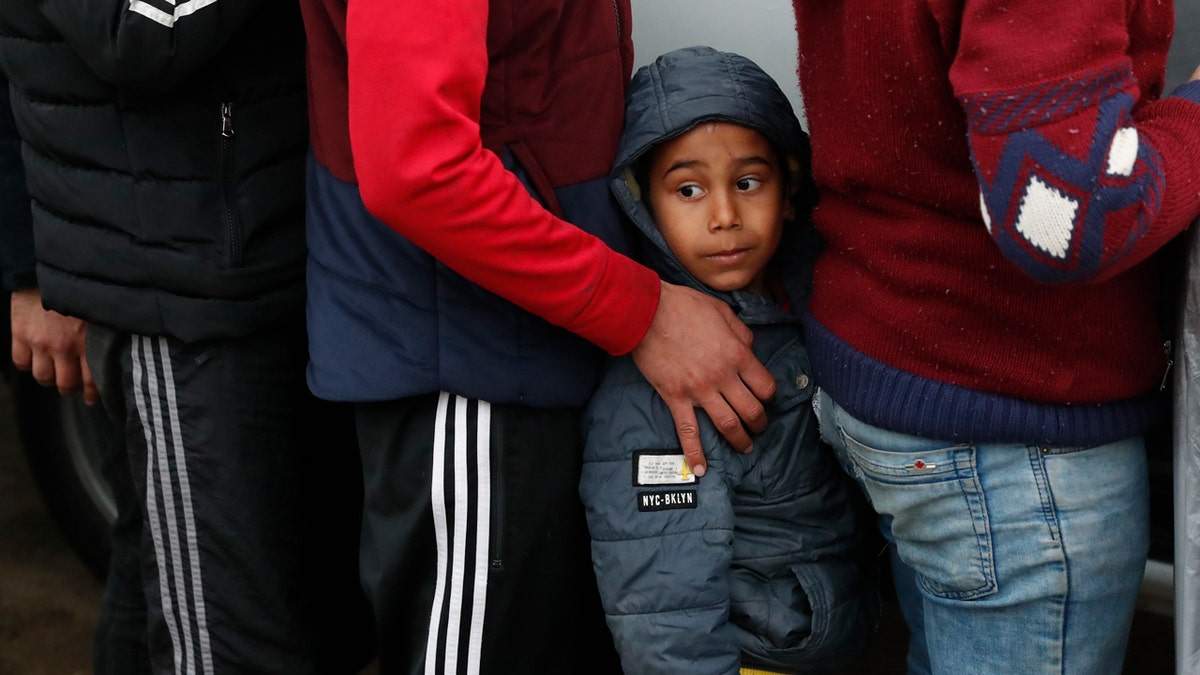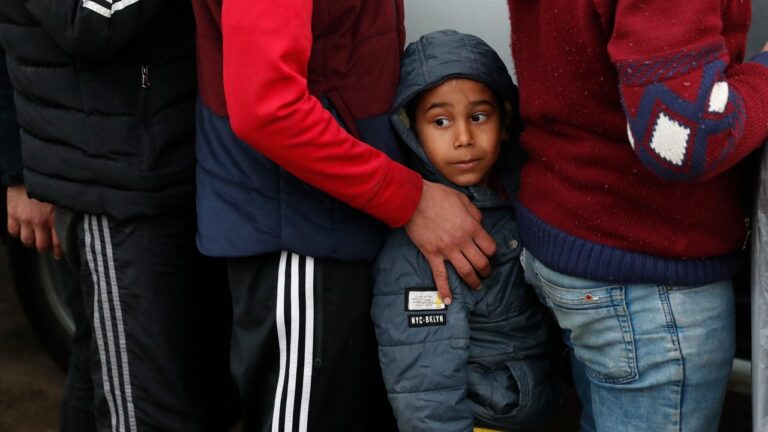European Union Auditors said Wednesday they are unable to determine whether some of the billions of euros the bloc has given Turkey to help it deal with Syrian refugees is actually having an impact.
As part of a deal reached between EU leaders and Turkey in 2016, the bloc pledged to provide at least $6.4 billion to Turkey to help it deal with arriving migrants from Syria. Turkey has in turn committed to preventing migrants from leaving its territory for Europe.
16 DEAD, INCLUDING 4 CHILDREN, AFTER THE SINKING OF A MIGRANT BOAT OFF THE OFFICE OF TURKEY
In March 2016, a month after the agreement came into force, the Turkish government said the number of migrants entering Greece illegally had fallen from around 6,000 per day in November 2015 to around 130 per day.
In 2021, leaders announced plans to send an additional $3.2 billion for refugees in Turkey. The agreement, which was hailed in Europe as a great success, served as a model for other, more recent and elaborate agreements with Tunisia and Egypt.

Migrants queue for a blanket distribution near the Turkish-Greek border, near Pazarkule, Edirne region, Turkey, Tuesday, March 10, 2020. European Union auditors said on Wednesday, April 24, 2024 that They are unable to establish whether some of the billions of euros the bloc has given Turkey to help it deal with Syrian refugees are actually having an impact. EU and Turkish leaders pledged in 2016 to provide at least $6.4 billion to Turkey to help it cope with migrants arriving from Syria. (AP Photo/Darko Bandic)
Money from the deal is being used to provide payment cards to some of the more than 4 million registered refugees, as well as to improve education and health, help people better integrate and build in Turkey facilities that may be needed by people fleeing the war in Syria. .
But the European Court of Auditorsor ECA, in a follow-up investigation last year into whether the money was being used effectively, said Turkey’s education ministry had refused to provide information that could allow it to assess the impact of European projects.
“I am sure that European citizens would like to see results coming out of the various development and humanitarian projects that the EU funds,” ECA member Bettina Jakobsen told reporters.
According to European Commission, the bloc’s executive branch, at least $566 million was intended to “support quality inclusive education for refugees in Turkey.” It is intended to pay teachers’ salaries and provide educational materials, Turkish language and teacher training, as well as counseling and other guidance.
Auditors sought a list of schools receiving EU support and the number of refugee students attending them, as well as information on whether out-of-school children had been reintegrated into the school system and their exam pass rates , compared to Turkish students.
Without this data, Jakobsen stressed, “we are not able to draw conclusions about measuring the impact or sustainability” of EU-supported education projects.
Asked by The Associated Press what was stopping auditors from getting the information from the Education Ministry, a European auditor involved in the process said: “They just said they didn’t have the data.”
“We know that data should normally exist,” said the auditor, who under ECA regulations could not be named. “It’s not our place to guess why or why they don’t want to provide the data.”
An ECA official noted that it is relatively rare for authorities not to cooperate with auditors.
Auditors and officials from the commission, charged with ensuring that the bloc’s money is properly spent, have made joint and individual requests for information, but without success.
The auditors were able to visit some schools, as well as hospitals, which benefit from European funds and saw that the facilities were used by refugees and Turkish students and that teachers worked there.
CLICK HERE TO GET THE FOX NEWS APP
Overall, given the challenges posed by the coronavirus pandemic, the major earthquake that hit Turkey and Syria in February 2023 and the soaring inflation in Turkey, the auditors found that the financing program of the EU “provided relevant support to refugees and host communities” in Turkey.
But Jakobsen also noted that auditors “discovered weaknesses in the commission’s assessment of project budgets” and said the EU’s executive branch “did not systematically assess whether project costs were reasonable nor compared similar costs between different projects.”


